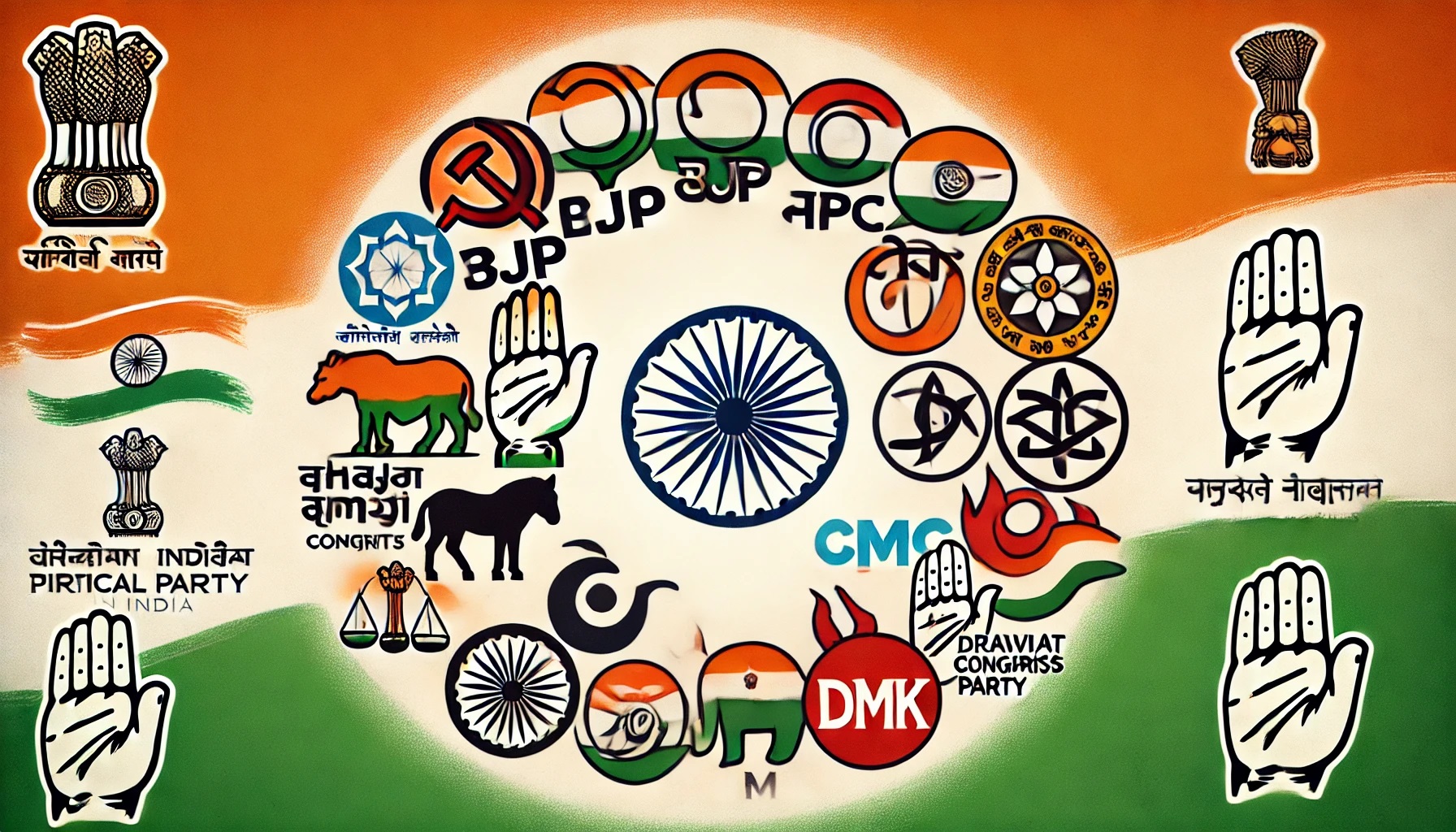Top 10 Biggest Political Parties In India: Do You Vote For Them?
Discover the top 10 biggest political parties in India, their ideologies, and their impact on the country's future. Learn why your vote matters and how to make an informed decision.

Jul 10, 2024
India is home to a diverse political landscape with numerous parties vying for power and influence. Understanding the biggest political parties can help voters make informed decisions. Here's an overview of the top 10 biggest political parties in India, their ideologies, and the role they play in shaping the country's future.
1. Bharatiya Janata Party (BJP)
Founded:1980
Ideology:Right-wing, Hindu nationalism, Conservatism
The BJP is currently the largest political party in India. It advocates for a strong nationalist stance and promotes Hindu cultural values. Under the leadership of Narendra Modi, the party has focused on economic reforms, national security, and infrastructural development.
2. Indian National Congress (INC)
Founded:1885
Ideology:Center-left, Social liberalism, Secularism
The INC, often referred to simply as Congress, is one of the oldest and most influential political parties in India. It played a pivotal role in the Indian independence movement. Today, it advocates for social justice, economic equality, and secularism. The party has faced challenges in recent years but remains a significant force in Indian politics.
3. All India Trinamool Congress (AITC Or TMC)
Founded:1998
Ideology:Center-left, Social democracy, Secularism
TMC, led by Mamata Banerjee, is a prominent party in West Bengal and has been expanding its influence in other states. The party focuses on grassroots activism, social welfare programs, and secular values. It has been a vocal critic of the BJP's policies.
4. Communist Party Of India (Marxist) (CPI(M))
Founded:1964
Ideology:Left-wing, Communism, Marxism-Leninism
CPI(M) is a major communist party in India with significant influence in states like Kerala, West Bengal, and Tripura. The party advocates for workers' rights, land reforms, and social equality. It has a strong base among the working class and rural populations.
5. Aam Aadmi Party (AAP)
Founded:2012
Ideology:Center, Populism, Anti-corruption
AAP emerged from the anti-corruption movement led by Arvind Kejriwal. The party focuses on transparency, good governance, and public welfare. It has made significant strides in Delhi, where it has been in power since 2013, and aims to replicate its success in other states.
6. Bahujan Samaj Party (BSP)
Founded:1984
Ideology:Center-left, Dalit socialism, Social equality
BSP was founded by Kanshi Ram to represent the Dalits and other marginalized communities in India. Under the leadership of Mayawati, the party has gained substantial support in Uttar Pradesh and other northern states. It advocates for social justice, equality, and the upliftment of oppressed communities.
7. Samajwadi Party (SP)
Founded:1992
Ideology:Center-left, Social democracy, Secularism
SP, led by Akhilesh Yadav, has a strong presence in Uttar Pradesh. The party focuses on social justice, economic development, and secularism. It has a significant support base among the Yadavs and other OBC communities.
8. Shiv Sena
Founded:1966
Ideology:Right-wing, Regionalism, Hindu nationalism
Shiv Sena, based in Maharashtra, was founded by Bal Thackeray. It promotes Marathi identity and Hindu nationalism. The party has been a key player in Maharashtra politics and has recently formed a coalition government with the NCP and Congress.
9. Nationalist Congress Party (NCP)
Founded:1999
Ideology:Center, Social democracy, Secularism
NCP, led by Sharad Pawar, was formed after a split from the Indian National Congress. The party has a strong presence in Maharashtra and focuses on social justice, economic development, and secularism. It has been part of several coalition governments at the state and national levels.
10. Dravida Munnetra Kazhagam (DMK)
Founded:1949
Ideology:Center-left, Dravidian nationalism, Social democracy
DMK is a major political force in Tamil Nadu. Founded by C.N. Annadurai, the party promotes Tamil culture, social justice, and federalism. Under the leadership of M.K. Stalin, the party continues to play a significant role in state and national politics.
Why Should You Vote?
Voting is a fundamental right and duty of every citizen. It allows you to:
- Influence Decision-Making:Your vote helps shape the policies and direction of the government.
- Hold Leaders Accountable:Voting ensures that leaders remain answerable to the people.
- Promote Democracy:Participation in elections strengthens the democratic process.
Key Issues To Consider
When deciding which party to vote for, consider the following issues:
- Economic Policies:Evaluate the party's approach to economic development, job creation, and poverty alleviation.
- Social Justice:Consider how the party addresses issues of inequality, discrimination, and social welfare.
- National Security:Assess the party's stance on national security, defense, and foreign policy.
- Environmental Policies:Look at the party's commitment to environmental protection and sustainable development.
- Governance and Corruption:Review the party's track record on governance, transparency, and anti-corruption measures.
Conclusion
India's political landscape is vast and varied, with each party bringing its unique vision and policies. Understanding the biggest political parties and their ideologies can help you make an informed decision at the polls. Remember, your vote is your voice, and it's crucial to use it wisely to shape the future of the country.
FAQs
What Is The Role Of Regional Parties In Indian Politics?
Regional parties play a crucial role in representing local interests and often have significant influence in state politics. They can also play a key role in coalition governments at the national level.
How Do Political Parties In India Get Funding?
Political parties in India receive funding through donations from individuals, corporations, and through public funding. They are required to disclose their financial statements to the Election Commission of India.
Can Non-resident Indians (NRIs) Vote In Indian Elections?
Yes, NRIs can vote in Indian elections. They must be physically present at their polling booth in India to cast their vote.